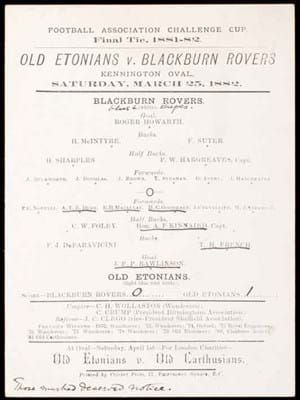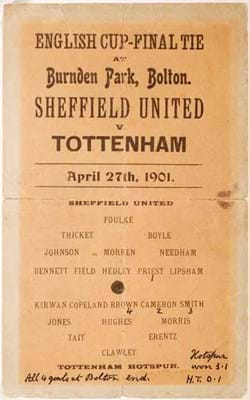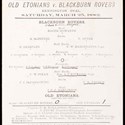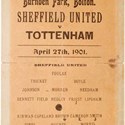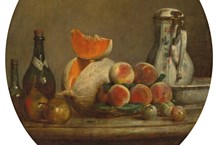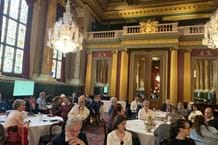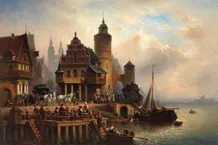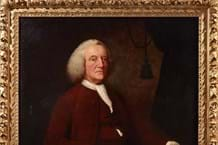In his latest auction held at Sotheby's New Bond Street, the earliest-known surviving FA Cup final programme - Old Etonians v Blackburn Rovers, played at Kennington Oval on March 25, 1882 - shot past the £20,000-25,000 estimate to hit £30,000.
It was bought at the sale on May 13-14, appropriately enough, by the Old Etonians Football Club to go on display at Eton College's Museum of Eton Life, which is open to the public.
The previous record, which Graham Budd set in May last year, was £20,000 paid for an official one penny match card from the 1909 FA Cup final between Manchester United and Bristol City. Back then, the price was just higher than the £19,000 seen for a copy of the 1889 FA Cup final programme (Preston v Wolves) which sold at Graham Budd in May 2006.
"The record had been edging up, to £18,000 to 19 to 20, and now up to £30,000," said Mr Budd. "There were a lot of underbidders for this one, about ten bidders altogether, with four on the phones, and quite a lot coming through the-saleroom.com, but in the end it was bought in the room."
Gentlemen Players
This simple match card has team line-ups, a list of officials and previous winners 1872-81, and the original owner has underlined six of the Old Etonian players and annotated the card 'Those marked deserved notice'. The reverse has an advert for a weekly sports magazine.
Its desirability is clear: nobody has seen an earlier FA Cup final programme or anything approaching as early as this, Mr Budd pointed out. FA Cup memorabilia is always popular and this programme also has huge historical significance.
"It marks the end of the early history of football, which was dominated by what you would call the gentleman amateur team really," he added. "Blackburn were the first team from the north of England to reach the cup final and although they lost on this occasion thereafter it was dominated by such teams with professional players and the nature of football completely changed -1882 was the last time a team of gentlemen players won it."
Provenance
The vendor, a collector, had a stroke of luck when he bought a job lot at a country sale, with papers, journals and other memorabilai relating to a lawyer called Sir Thomas Berry Cusack-Smith, KCMG, 5th Baronet (1859-1929), who was educated at Eton.
The vendor spotted the programme, realised what it was and found a diary entry for March 25, 1882, in which Cusack writes about going to the match, after which he met "S. Goodhart & J.B. Bradshaw" - the Old Etonians line-up included Harry Goodhart, probably a relation.
1901 Programme
In most auctions the sale of another very rare FA Cup final programme for £15,000 (estimate £5000-10,000) would be remarkable, but in this case it was inevitably somewhat overshadowed by being in the same sale as the world record example.
It was for a cup final replay played at Burnden Park, Bolton, on April 27, 1901, when Tottenham Hotspur beat Sheffield United 3-1. The single sheet includes a handwritten note 'Hotpsur won 3-1. H.T. 0-1, all 4 goals at Bolton end' and the goalscorers' names have been annotated in the order the goals were scored.
Cantona's Shirt
Another football highlight was Eric Cantona's match-worn Manchester United No.7 jersey in which he scored the winning goal in the 1996 FA Cup final against Liverpool. It made £15,000. The vendor? None other than Neil 'Razor' Ruddock, who was on the bench for Liverpool that day.
His teammate John Barnes had swapped shirts with Cantona but then threw the jersey to the ground in the dressing room out of frustration. Ruddock picked it up and asked if he could keep it as a memento.
The buyer's premium was 17.5%

